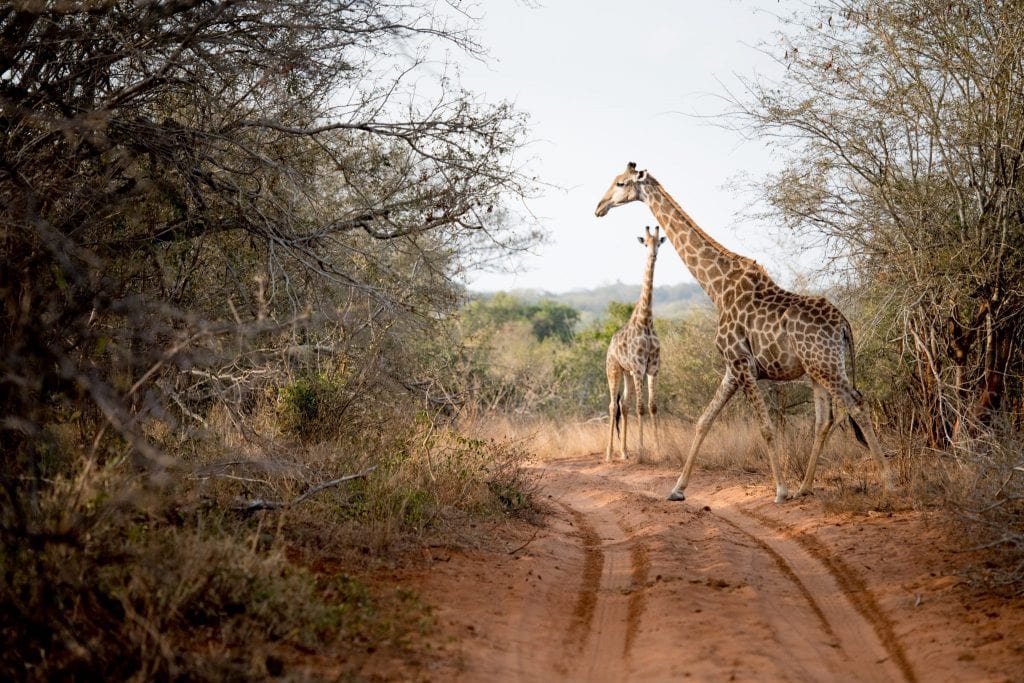Zimbabwe Is Boosting Tourism Despite Its Ravaged Economy

Skift Take

On Experience
Colin Nagy is a marketing strategist and writes on customer-centric experiences and innovation across the luxury sector, hotels, aviation, and beyond. You can read all of his writing here.Glance through the pages of the Financial Times and you'll see a story familiar to Zimbabwe’s recent history: hyperinflation.
The latest round is seeing consumer goods surge in prices. Shops have run out of staples, and peer-to-peer transactions are demanding U.S. dollars for everything out of fear of further devaluation of the national currency.
For 20 years following its independence in 1980, Zimbabwe was Africa’s most prosperous country and a frontrunner for Africa’s favorite tourist destination. But the country has certainly not had it easy over the past several decades: there’s been a history of genocide, corrupt politicians trashing the economy, with previously thriving industries torn to tatters: tourism included. In the 1990’s, the country welcomed around 1.5 million guests a year, but with mismanagement came attrition, and guests looking elsewhere on the continent.
There’s not a lot of global capital coming to the rescue, either. According to The Economist, “The IMF and the World Bank will not offer support unless Zimbabwe repays its arrears to multilateral creditors. America opposes any plan to restart lending.” In the World Bank’s Doing Business 2018 index, Zimbabwe ranks 159 out of 190; in the Cato Institute’s Economic Freedom of the World listing for 2018, Zimbabwe is 127 out of 162.
Even with the handover of power from despot Robert Mugabe, the country still gives the impression of a place that shouldn’t exactly be on the to-do list of tourists. But the exact opposite is true, right now. Despite the difficulties, the country offers one of the most interesting experiences in Africa: unspoiled nature, terrain, and interesting citizens. A lot of Zimbabwe’s land feels raw, unspoiled, and a manifestation of what people want from modern Africa travel. And it is a place where tourism dollars create meaningful outcomes, perhaps more than elsewhere.
Because of this, there is a steady stream of visitors returning to the country. They’re attracted, perhaps, by being frontier tourists and the social capital of going somewhere that others aren’t. But the sell and appeal are there for those that look closely enough: rivers, plains, lots of wild game, as well as a lake and red-hued ancient art painted on rocks dating back 2,000 years. It’s a spot where the early adopters are being richly rewarded with the added benefit of the fact that the upsurge of their foreign currency into the country actually benefits the nation, allowing for focus on improving infrastructure and other neglected areas. Plus, the resilience of Zimbabwe’s residents and their “we’ll make a plan” mentality is unique and their attitudes are infectious.
Alexander Mavros of Mavros Safaris said "the country has some of the best guides on the continent, and last great swathes of untouched wilderness... it is inspired travelers who ought to be the first to come back."
In another contrarian twist, there's some of the most enlightened, thoughtful conservation work in Africa, due to the power of public-private partnerships. When an economy tanks, poaching goes up with a ballpark bounty of $5,000 for a kilo of rhino horn. But a concerted effort in many parts of the country has countered this through policy, creativity, and boots on the ground efforts.
One of the most prominent examples, the Malilangwe Wildlife Reserve, is a partnership between the financier Paul Tudor Jones, and Singita, a safari and conservation company founded by Luke Bailes. The 130,000-acre reserve is a glowing case study in successful conservation efforts: there hasn’t been a poaching incident since 2007, and the reserve focuses on rhino, hartebeest, sable, wild dog and habitat conservation. The reserve has been so successful with reintroducing black and white rhinos they the staff jokes about “having too many rhinos,” playfully inquiring if anyone wanted an extra. The surplus animals are being relocated, and this fact is significant in itself given the dire situation for the animals elsewhere in Africa due to poaching.
In the morning, there are echoes of the trainee anti-poaching teams singing cadence out on their morning physical training runs through the bush. The full, anti-poaching team with around 90 wildlife scouts work out in the field and on surrounding properties and play an additional role in keeping track of the animals they see while out on patrol, and also provide data for the ongoing wildlife research and monitoring conducted on the reserve.
The tourism experience is also innovative in that Singita's Pamushana lodge was established for the purpose of generating income to assist in funding the conservation and community outreach programs coordinated by the Malilangwe trust. It is symbiotic in its intent, and not a bolt-on or afterthought in terms of approach. The reserve shows how donations and tourism can create a net positive experience and provide the right context for enlightened conservation.
And no matter how bad the country’s economy gets, these reserves are operating day-in-and-day-out, somewhat immune and isolated to the larger ups and downs of the country. It is a glimpse at how hospitality and private capital can create something new, and meaningful in a place that is otherwise resource-strapped.
But in order for the country to grow and realize its potential, the full range of what the country has to offer has to be developed and well articulated. Also, it needs to be easy to “buy” and get to. For this reason, Victoria Falls recently underwent $150 million of investment in its airport, which is now able to process more passengers. The Zimbabwe Civil Aviation Authority said the passenger volume surged by 25 percent during the period of January 2018 to August 2018. “Victoria Falls has always been the corner of hope. It has stayed the staple in Zim,” said Deborah Calmeyer, founder of safari company Roar Africa. “There's a few opportunities for travelers who want to explore as well. Mana Pools is well off the tourist track with some of the most exceptional wildlife viewing, as well as Bumi Hills Safari Lodge.”
The energy is clearly there in terms of sights, experiences, and investment in lodges and hospitality. But there’s a lot more progress that needs to be made to optimize the ecosystem.
Through canvassing a series of businesspeople and tourism officials, I heard a few recurring points that need to be addressed: Access and flights into the country is a major limiting factor, combined with modern immigration and customs systems at all entry points. Right now, some tourism is being facilitated by charter flights like Federal Air, into smaller airports like Buffalo Range. But in order to accommodate a wider range of tourists, there needs to be more flow of flights into the country, on regular schedules.
And of course, as with any emerging country, business and investment play a major role in terms of macro optics and perception. Which is a tall order given the current circumstances with leadership and the economy.
“We need tangible and visible progress in key industries in Zimbabwe to turn around the economy, which will naturally enhance the confidence in investment and tourism,” said Mark Sanders, executive director of the Malilangwe Trust. But for now, the contrarian truths of the country and experience should attract visitors wanting a more pure Africa experience.





